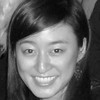Donald Trump, Brexit, Marine Le Pen, Alternative for Germany (AfD), the Netherlands' Geert Wilders—2016 has been a banner year for nativists and white supremacists, and I'll join in with all those lamenting a catastrophic year's events. Not everything's been hateful, though. I've loved, in particular, one heartening trend countering the upsurge of xenophobia: this year's bonanza of English-language fiction published by writers of Asian descent.The obvious examples are Viet Thanh Nguyen's The Sympathizer and Han Kang's The Vegetarian, 2016 winners of the Pulitzer and Man Booker International Prizes, two of the best-known anglophone literary awards. But there's been a profusion of less high-profile books by Asian Americans that merit celebration as well. I'd like to tell you about them, though I find I pause over the words I've just used: bonanza. Profusion. What I really mean is that it's a relative bonanza, a profusion compared to the more usual lack. As recently as 2015, an institution no less venerable than the New York Public Library issued a short list of recommended Asian Pacific American books that included Arthur Golden's Memoirs of a Geisha (an exoticizing book featuring Japanese geishas, written by a white man), James Michener's Hawaii (an exoticizing book featuring indigenous Polynesians and Asian immigrants, written by a white man), and Evie Wyld's All the Birds, Singing (a book about white sheep farmers on a British island, written by a white woman).Also last year, a white poet named Michael Derrick Hudson provoked an outcry by publishing his writing in a Best American Poetry anthology with the pen name Yi-Fen Chou, an act of yellowface reflecting a general acceptance of yellowface in the arts. More white women have won Oscars for acting in yellowface than Asian women have for acting, period; in 2016 alone, Tilda Swinton has been cast as a Tibetan man, Scarlett Johansson as a Japanese cyborg cop, Billy Magnussen as the lead in a Bruce Lee biopic, and Matt Damon as China's white male savior. 2016 is also the year when Calvin Trillin published a poem of racist doggerel about Chinese food in The New Yorker, then defended it as an attempt to be funny.
Advertisement
Advertisement
So, maybe I am glad, but glad in spite of the prevailing context: glad as an act of defiance. What a relief that, when Trillin failed to apologize for his poem, I could toss his New Yorker issue into the trash and turn instead to Jade Chang's The Wangs vs. the World, an authentically funny novel about a Chinese American family on a road trip, or to The Fortunes by Peter Ho Davies, an expansive fictional account of Chinese Americans through the past century. I've relished, too, Vanessa Hua's Deceit and Other Possibilities, a shrewd, often hilarious story collection about immigrants' challenging lives. The Border of Paradise by Esmé Weijun Wang is a singular achievement, difficult to describe briefly, but I'll note it's also about immigrants, it's gothic at times, it includes untranslated Mandarin and incest—really, you should just go read it.The more alarming the news has become, the more I've felt drawn to fiction that explores varieties of political strife. Karan Mahajan's The Association of Small Bombs, for instance, is a steadily intelligent novel (excerpted in VICE) about the long-term effects of a terrorist bombing in Delhi. The vibrant and astute Your Heart Is a Muscle the Size of a Fist, by Sunil Yapa, depicts the kind of large-scale domestic protest that will surely become more frequent in the years to come. Krys Lee's first novel, How I Became a North Korean, follows refugees who live in a Chinese-North Korean border city, while The Other One, a moving story collection by Hasanthika Sirisena, examines the repercussions of civil war for characters living in Sri Lanka and America.I've also delighted in Asian American fiction that portrays lives in less exigent circumstances. The first such book that comes to mind is Private Citizens, by the virtuosic Tony Tulathimutte, about four Stanford graduates in 2000s San Francisco, and which Christian Lorentzen at New York Magazine proclaimed as "the first great millennial novel." There's Tanwi Nandini Islam's Bright Lines, a lively, wise novel set in Brooklyn and Bangladesh, and Alexandra Kleeman's deliciously surreal Intimations. Finally, I can't talk about Asian American novels without shouting out Alexander Chee's splendid The Queen of the Night, the epic tale of an opera singer in 19th-century France.If I could, I'd applaud books published in 2016 by Anuk Arudpragasam, Leland Cheuk, Jung Yun, Viet Dinh, and Sonya Chung. How wonderful, on the one hand, to have more titles I'd like to praise than I have space, but I also wish it didn't feel so urgent to spread the news of these books. With their range and excellence, these novels and collections should, but won't, render obsolete the idea of a homogeneous Asian American experience, or one that can ever be represented in yellowface. Before 2016 ends, I want to celebrate these richly various books: They're here, and look how beautiful.Top photo: (from left) Han Kang, Viet Thanh Nguyen, Esmé Weijun Wang, and Karan MahajanFollow R. O. Kwon on Twitter.With their range and excellence, these novels and collections should, but won't, render obsolete the idea of a homogeneous Asian American experience.
